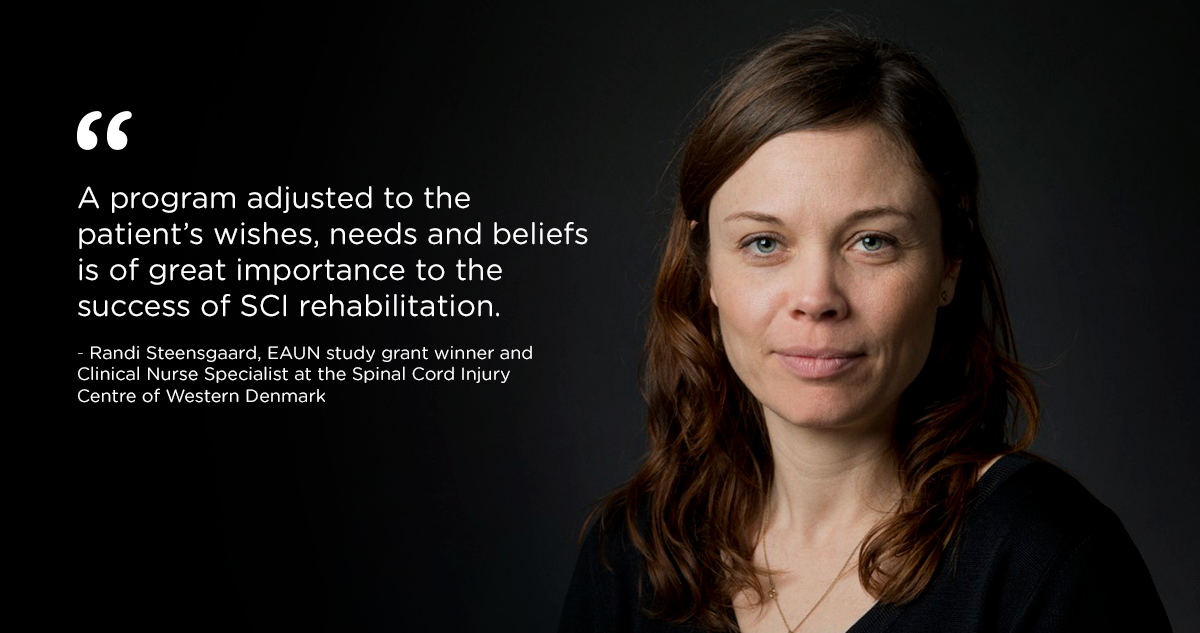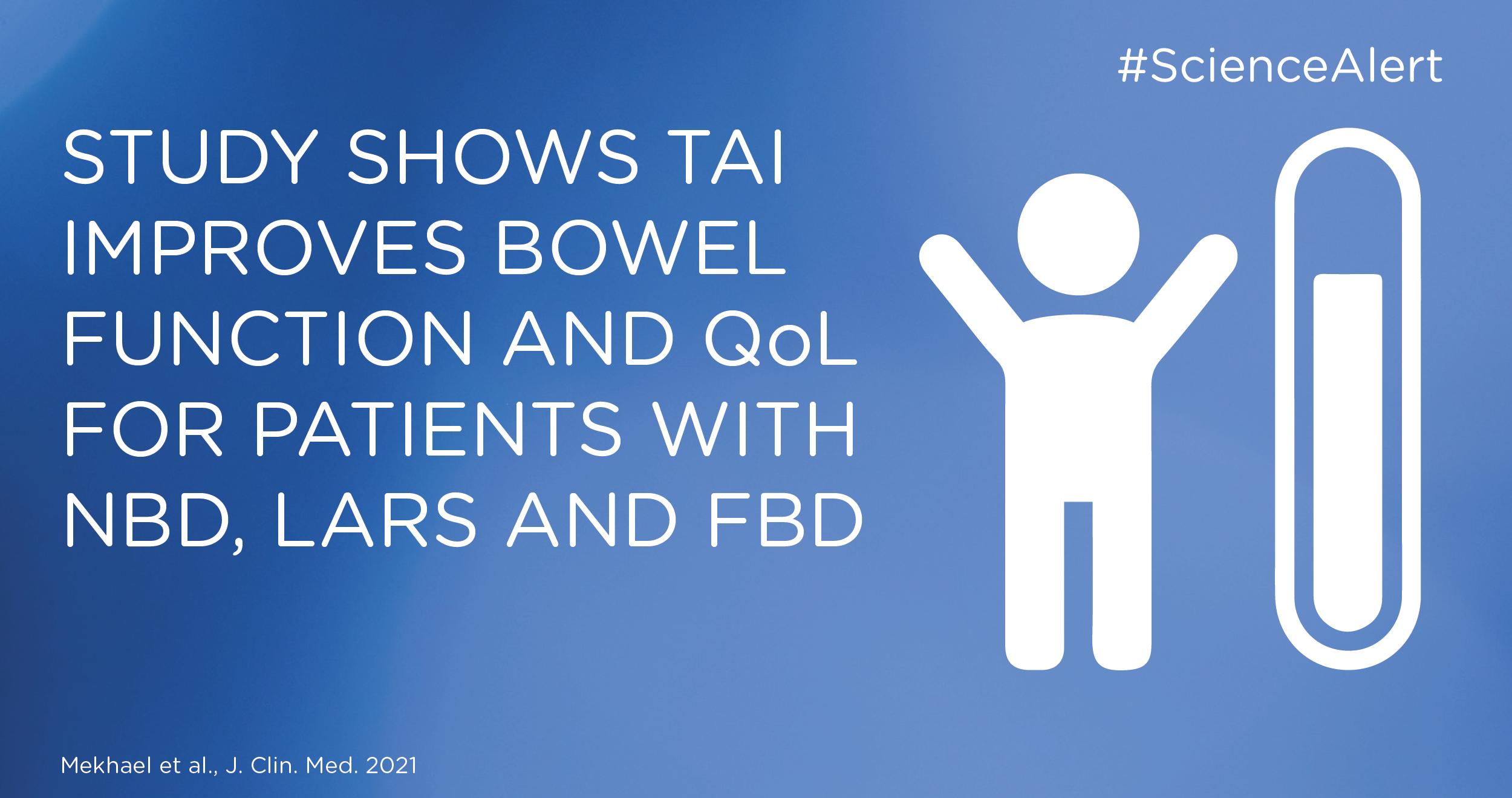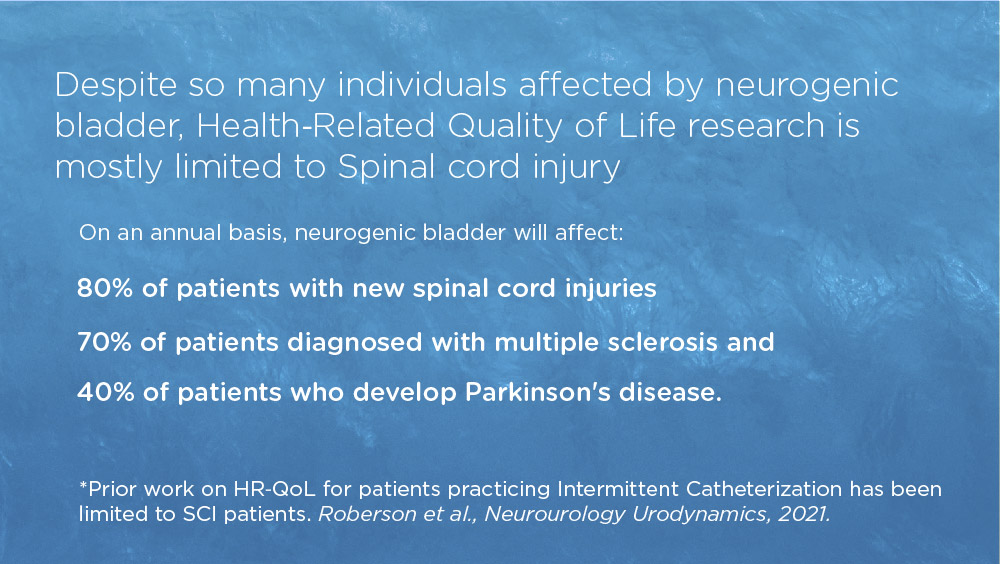What can a Wellspect study grant do for you as a healthcare professional? Recent winner of the EAUN study grant, sponsored by Wellspect, Randi Steensgaard, Head of Clinical Nursing Research from Denmark, is making a valuable contribution to Spinal Cord Injury care and research, supporting patients to lead a meaningful life.
Read MoreTopics: Study grant, Spinal Cord Injury, rehabilitation
In this systemic review Mekhael et al shows collected evidence for that transanal irrigation (TAI) is a beneficial bowel continence care for both neurogenic bowel dysfunction (NBD), low anterior resection syndrome (LARS), and functional bowel disorders (FBD) presented as symptoms of fecal incontinence (FI) and chronic constipation (CC).
Read MoreTopics: Bowel management, Neurogenic bowel, Science Article
For a successful therapy, it’s important to find out the patients’ actual experiences when performing intermittent catheterization (IC). But a lack of research can provide obstacles. Have we heard directly from the patient about the difficulties they face when approaching IC?
A recent study seeks to remedy this neglect in research; it involved a total of 200 adults who had independently been performing IC for at least 6 months across the US.
Read More
Topics: Urinary Tract Infection (UTI), Neurogenic bladder, Spinal Cord Injury (SCI), Parkinsons disease, Intermittent Catheterization, multiple sclerosis
Neurogenic bowel dysfunction (NBD) with symptoms of constipation and fecal incontinence is a common complication of traumatic spinal cord injury. In a new study, the aim was to identify factors that could predict the recovery of independent bowel function to assist clinicians in their prognosis of bowel function and to guide them to bowel management strategies useful for the patient.
Read MoreTopics: Bowel management, constipation, Spinal Cord Injury, neurogenic bowel dysfunction
Wellspect supports evidence-based research and practice in the field of continence care, and sponsors the annual ESPUN study grant. Tinne Van Aggelpoel is the latest winner, and for World Toilet Day, we present the outcome of her study in the field of pediactric bladder and bowel management.
Read MoreTopics: Bladder management, European Society for Paediatric Urology (ESPU), Study grant, WorldToiletDay






